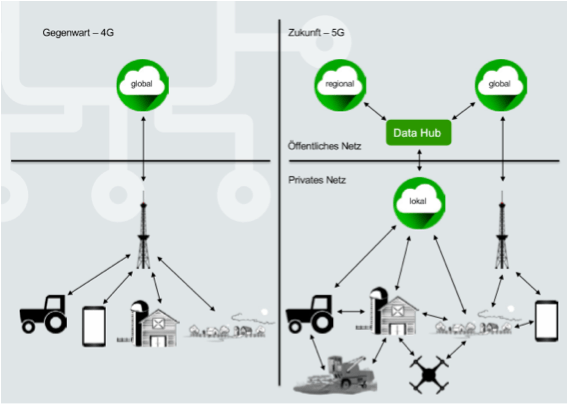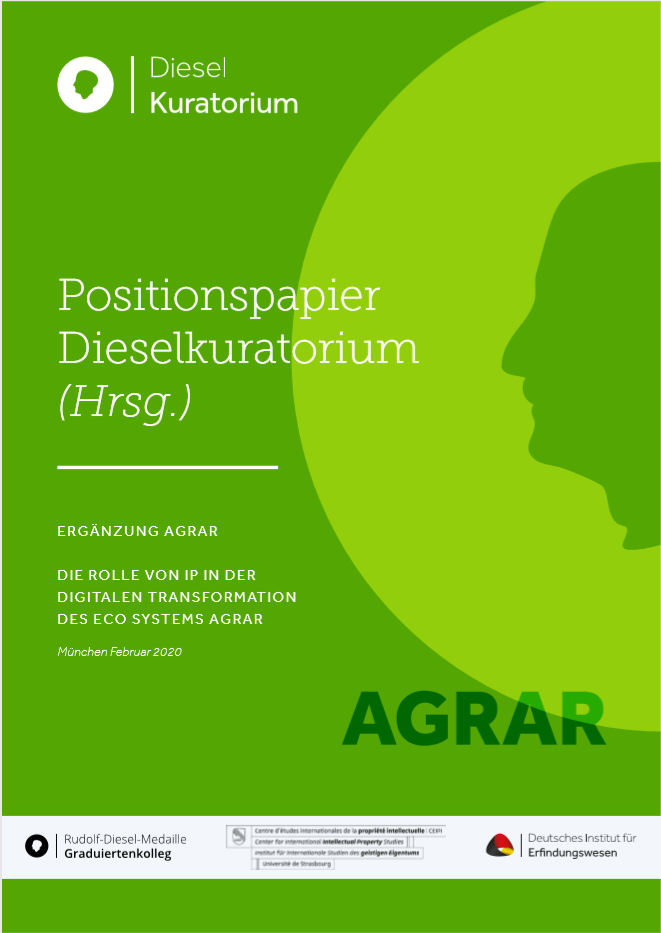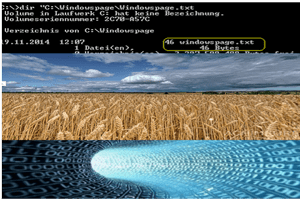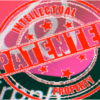Patent strategies in digital farming: Current study on a showcase for Industry 4.0
The approach for Agriculture 4.0 is identical to that of Industry 4.0; in both cases the aim is to intelligently connecting production processes and control them based on real society, customer, and market interests. Under the title “The role of IP in the digital transformation of the agricultural ecosysteml „Die Rolle von IP in der digitalen Transformation des Eco-Systems Agrar” the Board of Trustees of the Dieselmedaille, presented a current study on the digitization of agriculture and the IP strategies used, the oldest general innovation award in Germany.
Agriculture 4.0 builds on the innovations and experiences of Industry 4.0 and further develops them with the special requirements of bioeconomic value chains. Therefore, from the advanced patent and IP strategies in the agricultural industry, it is easy to derive how patents will affect the use of 5G campus network, for example.
 The value chains in agriculture are based on plants and animals that interact with each other and with the environment, which leads to a highly variable productivity. In the run-up to the actual production of the product, longer periods of time, such as the growth phases of plants, must be considered and included.
The value chains in agriculture are based on plants and animals that interact with each other and with the environment, which leads to a highly variable productivity. In the run-up to the actual production of the product, longer periods of time, such as the growth phases of plants, must be considered and included.
Smart Farming is based on information-intensive technologies for inventory management, data management and machine control. With the help of the procurement (sensor technology) and processing (analysis) of the information, better decisions should be possible.
is based on information-intensive technologies for inventory management, data management and machine control. With the help of the procurement (sensor technology) and processing (analysis) of the information, better decisions should be possible.
With the fifth generation of mobile communications standards (5G), all networked things can be connected to the Internet. The Internet of Things (Patent Strategies for IoT-Based Business Models) will make it possible to monitor, digitize, control and optimize the entire agricultural value chain. As a result, a significantly improved result with regard to the use of spray and fertilizers as well as yield can be achieved with less labor and material input. 5G will also be the beginning of the tactile internet. The tactile internet will drive the automation of mobile devices in unexpected ways. This “robotization” of the world is already enabling significant productivity advances in agriculture.
 Various generic IP strategies can be observed by established and new entrants. In general, it can be stated that digital solutions such as apps, cyber-physical systems and business model elements are increasingly being patented and less electronic or mechatronic individual and detailed solutions.
Various generic IP strategies can be observed by established and new entrants. In general, it can be stated that digital solutions such as apps, cyber-physical systems and business model elements are increasingly being patented and less electronic or mechatronic individual and detailed solutions.
An analysis of patent activities in the agricultural eco-system with the companies agrirouter, Amazone, Holmer exxact, John Deere, Krone, Lemken and 365 Farmnet shows their positioning within the agricultural eco-system.
How specific patents work in the digitally transformed eco-system of digital farming is exemplified in the following film:
The university case study on Claas / 365 FarmNet (Smart Farming) explains the application of IP design for the design and IP protection of digital business models.



